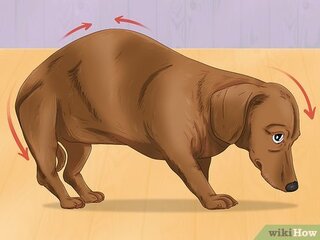 Since Nonie’s opened its Special Needs Unit, we have had dogs with CHF, pets on complicated meds, pets with severe separation anxiety, even pets that are in their last days. We meet with your Vet first, obtain instructions, etc, and then handle their care if you must leave town. We make house calls or we place them on 24 hour watch; whatever your Vet recommends. When it comes to understanding our pets, we sometimes wish they could just tell us when something's wrong. While they can't communicate verbally like we do, they certainly have ways of expressing themselves. Recognizing the subtle signs of discomfort or pain in your pet is crucial for their well-being. Here's how you can decode some of these signs: 1. Behavioral Changes: Any sudden or gradual change in your pet's behavior can be a red flag. For instance: A normally playful pet suddenly becomes lethargic or withdrawn. An independent pet suddenly becomes clingy or vice versa. 2. Changes in Eating Habits: Eating less or not eating at all. Drinking more or less water than usual. 3. Vocalization: Whining, groaning, yelping, or more frequent meowing. Increased aggression or irritability when touched. Learn your pet’s language, they are communicating with you. Sometimes a cry or a whine isn’t for attention or boredom, he’s in pain. 4. Physical Signs: Limping or favoring one leg. Difficulty in rising from a resting position or reluctance to jump or climb stairs. Hunching over, a stiff gait, or altered posture. Swelling or heat in any area of the body. 5. Changes in Personal Hygiene: Grooming less often, leading to a dull or matted coat. Over-grooming or licking a specific area, which might indicate pain or itching. Unexplained weight loss or gain. 6. Altered Sleeping Patterns: Sleeping more than usual or difficulty sleeping. Restlessness or frequently changing positions. Did Buddy stop coming downstairs for breakfast? It might be because he doesn’t feel good or is having difficulty getting up and it’s painful. 7. Respiratory Changes: Panting or labored breathing in animals that typically don't pant. Increased heart rate. 8. Digestive Upsets: Diarrhea, vomiting, constipation, or straining during elimination. Blood in stool or urine. 9. Eye Changes: Cloudiness, redness, or frequent squinting. Increased tear production or discharge. 10. Hiding or Seeking Isolation: Many animals, especially cats, will hide or seek solitude when they are in pain or feeling unwell. What Can You Do? 1. Take Notes: Document any changes or symptoms. This can help your veterinarian pinpoint the issue. 2. Regular Check-ups: Routine veterinary visits can catch potential health problems before they become severe. 3. Trust Your Instincts: As a pet owner, you know your pet best. If something feels off, it probably is. 4. Seek Veterinary Advice: If you notice any of the signs mentioned above or other unusual behaviors, it's crucial to consult with a vet. 5. Provide Comfort: Ensure your pet has a comfortable resting place and is in a stress-free environment. 6. Avoid Self-diagnosis: While the internet is a trove of information, it's essential not to jump to conclusions or administer medications without consulting a veterinarian. In conclusion, our pets rely on us to notice when they're not feeling their best. By being attentive and proactive, we can ensure they receive the care they need. After all, they bring so much joy and comfort into our lives; it's only right that we do the same for them. Pets are the new kids and plants are the new pets!!!
0 Comments
How Dogs Fill the Gaps in Our Lives: An Emotional and Psychological Perspective, Liz Schneider9/16/2023  Introduction: Roger Caras' famous quote, "Dogs are not our whole life, but they make our lives whole," beautifully encapsulates the profound impact dogs have on our emotional and psychological well-being. Beyond being our faithful companions, dogs serve as sources of comfort, joy, and enrichment in our lives. In this article, we'll delve into the emotional and psychological insights behind Caras' words, exploring the myriad ways in which dogs make our lives whole.
|
Archives
July 2024
Categories |

 RSS Feed
RSS Feed